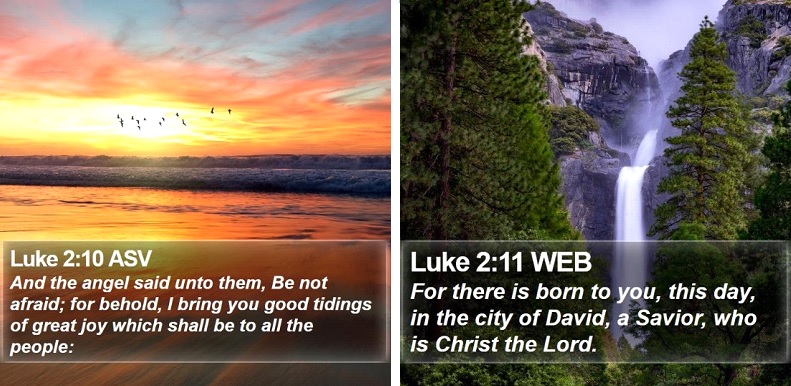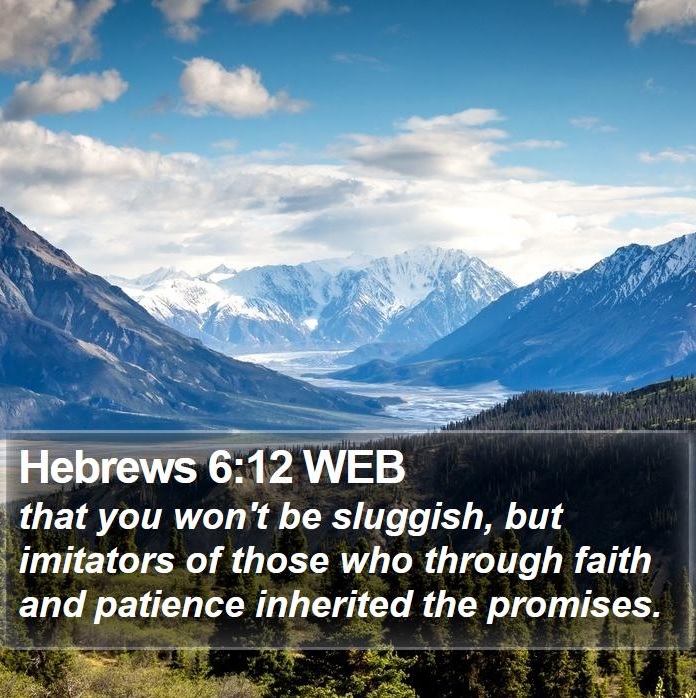“Go therefore and make disciples of all the nations…teaching them to observe all that I commanded you; and lo, I am with you always, even to the end of the age” (Matthew 28:19-20, NASB).
——————–
Contents:
1) Luke and the Birth of Jesus (Doy Moyer)
2) The Ugliness of Selfishness (Bryan Gibson)
3) Sword Tips #25 (Joe R. Price)
——————–

-1-
Luke and the Birth of Jesus
Doy Moyer
Luke’s intent to “compile an account of the things accomplished among us” as handed down by eyewitnesses begins with the birth of John the Immerser. John’s role would be to “turn many of the sons of Israel back to the Lord their God” by going “as a forerunner before Him in the spirit and power of Elijah, to turn the hearts of the fathers back to the children, and the disobedient to the attitude of the righteous, so as to make ready a people prepared for the Lord” (Luke 1:16-17). When his father, Zachariah, prophesied, he associated John’s work with redemption and salvation (Luke 1:67-79). How? He would be the one who would “go on before the Lord to prepare His ways.” Prophecies were being fulfilled, and John would level out the rough places and make a path for the Messiah to do His work.
Luke reveals the announcement about the birth of Jesus to Mary, prior to John’s birth. Gabriel came to Mary to tell her, “Greetings, favored one! The Lord is with you.” She did not yet understand what that would mean. She was told, “Do not be afraid, Mary; for you have found favor with God. And behold, you will conceive in your womb and bear a son, and you shall name Him Jesus. He will be great and will be called the Son of the Most High; and the Lord God will give Him the throne of His father David; and He will reign over the house of Jacob forever, and His kingdom will have no end” (Luke 1:30-33). Luke stresses the fact that Jesus would be the one who sits and rules on David’s throne with a kingdom that would never end (cf. 2 Sam 7:12-13). Mary’s response was one of acceptance, but far more than this. John’s mother, Elizabeth, filled with the Holy Spirit, called her blessed.
Luke then records what is often called the Magnificat (Luke 1:46-55). Mary exalts God, rejoiced in “God my Savior,” and praises Him for His mighty deeds. She recognizes that she would be forever called “blessed” because of God’s favor upon her “humble state.” She praises God for His enduring mercy toward those who fear Him. What a glorious song of praise! God does indeed scatter the proud and exalt the humble. His mercy is from generation to generation, and this is best seen in the purposes of the coming of Jesus.
After John’s birth (highlighting that he is the forerunner), Luke moves to the birth of Jesus as the One who brings the redemption and salvation. Joseph and Mary had gone to Bethlehem where a full house lent itself to Jesus being placed in a feeding trough (note: mangers would be found in houses connected to a room for animals). These are humble beginnings for the Savior and Redeemer of humanity, but it fits His purposes in coming into this world to suffer, die, and rise again.
Also fitting is the fact that shepherds were told about Jesus’ birth. We might wonder why shepherds are an important part of the story, but we should not be surprised by this. Recall that God is the greatest Shepherd of all (cf. Gen 49:24), the One who led His people from slavery to the Promised Land. David was a shepherd, called to be a shepherd of the people as a king. All of this points to the “Good Shepherd,” Jesus Christ, who would lead the stray sheep from their sins into the abundant life (John 10). Since “all of us like sheep have gone astray” (Isa 53:6), we need the “Chief Shepherd,” the Guardian of our souls, to bring us back home (1 Pet 2:25; 5:4). The shepherds of the field foreshadow the work of Jesus, and they came to glorify the Shepherd of our souls.
The angelic message to the shepherds was about glory and peace: “And suddenly there appeared with the angel a multitude of the heavenly host praising God and saying, ‘Glory to God in the highest, and on earth peace among men with whom He is pleased’” (Luke 2:13-14). The Lord’s coming into the world would be about the manifestation of God’s glory and the bringing of peace.
When Jesus was taken to the temple, he was put into the arms of Simeon who recognized Jesus as the salvation promised by God, “a light of revelation to the Gentiles and the glory of your people Israel” (Luke 2:32). The Light of the world had come, and this was to the glory of God and His people. At the temple was also Anna, the prophetess, who came and began “giving thanks to God, and continued to speak of Him to all those who were looking for the redemption of Jerusalem” (v. 38). Glory, peace, light, revelation, consolation, redemption, salvation — these are the terms Luke is associating with the birth of Jesus Christ. He is King, Savior, and Redeemer, fully deserving our worship and praise. Thank God for the incarnation!
— Via Doy Moyer’s Facebook site, December 15, 2023
——————–

-2-
The Ugliness of Selfishness
Bryan Gibson
Here is God’s case against selfishness, at least in outline form: 1) He specifically condemns it (Romans 2:7-8; Galatians 5:20; James 3:14-16). 2) He shows us its ugly fruits, through men like King Saul (1 Samuel 18:8-9), and the rich fool in the parable (Luke 12:13-21). 3) He specifically commends (and commands) the opposite virtue of unselfishness (Mark 8:34; 1 Corinthians 10:23-24; 13:5; Philippians 2:3-4). 4) And He provides us great examples of unselfishness, of Christ Himself (Philippians 2:5-8), and men like Timothy (Philippians 2:19-24), and Epaphroditus (Philippians 2:25-30).
It’s time then, with God’s help, we rid ourselves of selfishness, and all its ugly fruits. But for now, let’s focus especially on our children. They too need to learn the ugliness of selfishness. “It is more blessed to give than to receive” (Acts 20:35)—Jesus said it, and He lived it. And we need to help our children live it, too.
And it will get ugly if we don’t—if we let our children grow up with a self-centered approach to life. 1) They won’t give liberally (2 Corinthians 9:6-7), which means the needs of others will go unmet. 2) They’ll have a difficult time enduring the hardships of life (2 Timothy 2:3; 3:12). 3) They’ll likely develop some other ugly fruits of selfishness, like envy and revenge (James 3:14-16; Romans 12:17-21). 4) They may have trouble holding down a job (1 Timothy 5:8), unless, of course, the conditions are just right. 5) And they may not give enough time to their families. Can we see just how ugly this business of selfishness can get?
So how do we teach our children to be unselfish?
Point them to a cause much greater than themselves—the cause of Christ, a cause dedicated to the welfare of others, and especially the salvation of their souls (Luke 19:10).
Set a good example of love, a love that “does not seek its own” (1 Corinthians 13:4-5).
Point out other good examples—from the Bible (e.g., Dorcas—Acts 9:36-39), and from people they know personally. Let these be the kind of people they truly admire.
Teach them to share possessions, time, money, etc. (Hebrews 13:16). Make sure they know who really owns these things, and that we are accountable to Him for how we use them.
Point out specific acts of unselfishness they can do (e.g., Matthew 25:34-40). Willingness is not always the problem; sometimes they just don’t know what to do.
Don’t always take their side, with teachers, coaches, administrators, etc. “The other person is always wrong” is a dangerous (and sinful) attitude for them to develop.
Don’t give them too much too soon, lest they become entitled like the leech’s two daughters, “Give and Give” (Proverbs 30:15-16).
Teach them everything the Bible says about unselfishness, in addition to those cited above. A couple good ones:
If anyone desires to come after Me, let him deny himself, and take up his cross, and follow Me. (Matthew 16:24)
It is no longer I who live, but Christ lives in me, and the life which I now live in the flesh I live by faith in the Son of God, who loved me and gave Himself for me. (Galatians 2:20)
— Via Plain Words from God’s Word, December 6, 2023
——————–

-3-
“And take…the sword of the Spirit, which is the word of God” (Eph. 6:17).
Sword Tips #25
Joe R. Price
“Brethren, join in following my example, and note those who so walk, as you have us for a pattern” (Philippians 3:17).
Godly examples are a great blessing.
They embolden our faith by showing us people of faith do exist. And, they show us that being faithful to God makes a difference in this world.
The example set by the apostle Paul (who wrote this passage) continues to help Christians be strong and courageous in their faith.
Make it your goal to follow the pattern of the apostles.
Then, you too will be a worthy example for others to follow.
——————–
The Steps That Lead to Eternal Salvation
1) Hear the gospel — for that is how faith comes (Rom. 10:17; John 20:30-31).
2) Believe in the deity of Jesus Christ, the Son of God (John 8:24; John 3:18).
3) Repent of sins. For every accountable person has sinned (Romans 3:23; Romans 3:10), which causes one to be spiritually dead (Ephesians 2:1) and separated from God (Isaiah 59:1-2; Romans 6:23). Therefore, repentance of sin is necessary (Luke 13:5; Acts 17:30). For whether the sin seems great or small, there will still be the same penalty for either (Matt. 12:36-37; 2 Cor. 5:10) — and even for a lie (Rev. 21:8).
4) Confess faith in Christ (Rom. 10:9-10; Acts 8:36-38).
5) Be baptized in water for the remission of sins (Mark 16:16; Acts 2:38; 22:16; 1 Pet. 3:21). This is the final step that puts one into Christ (Gal. 3:26-27). For from that baptism, one is then raised as a new creature (2 Cor. 5:17), having all sins forgiven and beginning a new life as a Christian (Rom. 6:3-4). For the one being baptized does so “through faith in the working of God” (Col. 2:12). In other words, believing that God will keep His word and forgive after one submits to these necessary steps. And now as a Christian, we then need to…
6) Continue in the faith by living for the Lord; for, if not, salvation can be lost (Matt. 24:13; Heb. 10:36-39; Rev. 2:10; 2 Pet. 2:20-22).
——————–
Tebeau Street
CHURCH OF CHRIST
1402 Tebeau Street, Waycross, GA 31501
Sunday: 9 a.m. Bible Classes and 10 a.m. Worship Service. Congregational Song Service: 5 p.m. for every first Sunday of the month.
Wednesday: 7 p.m. Bible Classes
evangelist/editor: Tom Edwards (912) 281-9917
Tom@ThomasTEdwards.com
https://thomastedwards.com/go/all.htm (This is a link to the older version of the Gospel Observer website, but with bulletins going back to March 4, 1990.)